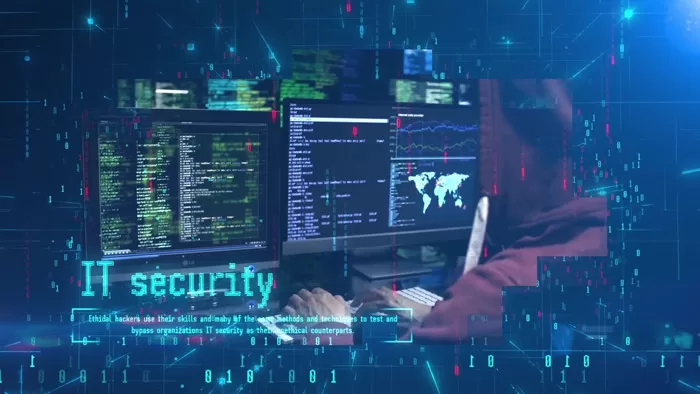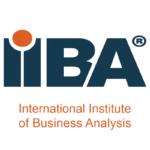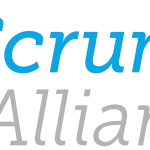If you’ve ever wondered how to become a hacker and utilize your skills ethically, CLS Learning Solutions offers a comprehensive Professional Hacker Course. This article explores the importance of professional hacker training, focusing on the Certified Ethical Hacker (CEH) Version 10 certification, the roles and responsibilities of a hacker, types of hackers, and the value of earning relevant degrees or certifications.
Understanding the Professional Hacker Course:
The Professional Hacker Course offered by CLS Learning Solutions is designed to equip individuals with the necessary skills and knowledge to become ethical hackers. This course provides comprehensive training in various hacking techniques, methodologies, and defensive measures to ensure participants understand the mindset and tactics employed by malicious hackers.
clslearn offers you the best courses in the course of CEH Ethical Hacker
Certified Ethical Hacker (CEH) Version 10:

The CEH v10 is a globally recognized certification within the professional hacker community. It offers a comprehensive curriculum that covers the latest hacking tools, techniques, and methodologies. The CEH v10 certification demonstrates an individual’s proficiency in ethical hacking and enables them to identify vulnerabilities and secure systems proactively.
What Does a Hacker Do?
Contrary to popular belief, hackers can be both malicious and ethical. Ethical hackers, also known as white hat hackers, are cybersecurity professionals who legally and ethically identify vulnerabilities in systems, networks, and applications. They perform penetration testing, vulnerability assessments, and security audits to help organizations strengthen their security posture.
Roles and Responsibilities of a Hacker:
Ethical hackers have various roles and responsibilities in the cybersecurity field. They are responsible for conducting security assessments, identifying vulnerabilities, performing risk assessments, developing security strategies, and providing recommendations for improving the overall security of an organization’s digital assets.
Types of Hackers:
The hacker community encompasses different types of individuals with varying motivations and intentions. This section explores different hacker archetypes, including white hat hackers (ethical hackers), black hat hackers (malicious hackers), gray hat hackers (a mix of ethical and malicious intentions), and hacktivists (hackers with socio-political motivations).
Earning a Relevant Degree or Certification:
While formal education is not always a prerequisite for becoming a professional hacker, earning a relevant degree or certification can greatly enhance one’s knowledge and career prospects. Degrees in cybersecurity or computer science, along with certifications like the CEH v10, demonstrate a commitment to the field and provide a solid foundation for an ethical hacking career.
Some additional points to further elaborate on the topic:

Professional Hacker Course Curriculum:
The Professional Hacker Course provided by CLS Learning Solutions covers a wide range of topics essential for ethical hacking. Participants learn about network security, system vulnerabilities, web application security, wireless network security, cryptography, social engineering, and more. The curriculum is designed to provide hands-on experience and practical skills that can be applied in real-world scenarios.
The CEH v10 Certification in Detail:
The Certified Ethical Hacker (CEH) Version 10 certification is a globally recognized credential that validates the skills and knowledge of ethical hackers. It covers areas such as footprinting and reconnaissance, scanning networks, enumeration, system hacking, malware threats, sniffing, social engineering, and more. CEH v10 emphasizes the latest hacking techniques, tools, and countermeasures to ensure professionals are up-to-date with the evolving cybersecurity landscape.
Ethical Hacking Methodologies:
Ethical hackers follow a systematic approach to identify vulnerabilities and secure systems. This involves conducting reconnaissance, identifying potential entry points, exploiting vulnerabilities, gaining unauthorized access, and documenting the findings. Ethical hacking methodologies adhere to strict guidelines and legal frameworks to ensure that all activities are conducted ethically and with proper authorization.
Importance of Ethical Hacking:
Ethical hacking plays a crucial role in today’s cybersecurity landscape. By identifying vulnerabilities and weaknesses, ethical hackers help organizations proactively address security flaws before malicious hackers can exploit them. Ethical hacking is an integral part of comprehensive security assessments, penetration testing, and vulnerability management strategies.
Get to know about 10 TOP OFFENSIVE SECURITY TOOLS
Career Opportunities for Ethical Hackers:
The demand for skilled ethical hackers is on the rise, driven by increasing cybersecurity threats and the need for robust defenses. Graduates of professional hacker courses, such as the one offered by CLS Learning Solutions, can pursue various career paths. These include positions such as ethical hacker, penetration tester, vulnerability analyst, security consultant, incident responder, and cybersecurity analyst. Ethical hackers often find employment in industries such as finance, healthcare, government, and technology.
Ongoing Learning and Skill Development:
The field of ethical hacking is continuously evolving, with new threats and vulnerabilities emerging regularly. Ethical hackers must engage in continuous learning to stay abreast of the latest hacking techniques, security technologies, and defensive strategies. Professional development through certifications, industry conferences, workshops, and participation in cybersecurity communities is crucial for ethical hackers to maintain their skills and knowledge.
Ethical Hacking as a Force for Good:
Ethical hacking serves as a crucial defense mechanism against cyber threats. By identifying weaknesses and helping organizations strengthen their security, ethical hackers contribute to the overall resilience of digital systems. Their work helps safeguard sensitive data, protect privacy, and ensure the integrity of critical infrastructure.
By enrolling in a professional hacker course, individuals can gain the necessary expertise to become ethical hackers and make a positive impact in the cybersecurity field. The combination of practical skills, industry-recognized certifications, and ongoing learning empowers professionals to take on the challenges of securing digital environments effectively.
Get to know about ENHANCING CYBERSECURITY WITH SOC AS A SERVICE (SOCAAS)
What are some common career paths for individuals who complete the professional hacker course?

Completing a Professional Hacker Course opens up several exciting career paths for individuals looking to utilize their ethical hacking skills. Here are some common career paths for those who have completed such a course:
Ethical Hacker/Penetration Tester: Many individuals who complete a professional hacker course pursue careers as ethical hackers or penetration testers. These professionals assess the security of systems, networks, and applications by attempting to exploit vulnerabilities in a controlled manner. They provide organizations with valuable insights into their security posture and recommend measures to mitigate risks.
Security Consultant: Professional hacker course graduates can work as security consultants, advising organizations on improving their overall security infrastructure. They assess existing security measures, develop security strategies, conduct risk assessments, and provide recommendations for enhancing security controls and practices.
Vulnerability Analyst: Vulnerability analysts focus on identifying and assessing vulnerabilities in systems and networks. They use tools and techniques learned during their professional hacker course to conduct vulnerability assessments, analyze security flaws, and propose remediation measures. Their work helps organizations proactively address vulnerabilities and strengthen their security defenses.
Incident Responder: Incident responders are responsible for detecting, investigating, and responding to cybersecurity incidents. They play a crucial role in mitigating the impact of security breaches and ensuring the rapid recovery of systems and data. The knowledge gained from a professional hacker course equips individuals with the skills needed to analyze incidents, identify the root cause, and implement effective countermeasures.
Security Analyst: Security analysts monitor and analyze security events, assess the effectiveness of security controls, and identify potential threats or breaches. They use their ethical hacking skills to understand the tactics and techniques employed by malicious actors and develop proactive measures to prevent and detect security incidents.
Cybersecurity Researcher: Professional hacker course graduates can pursue careers in cybersecurity research, focusing on identifying new vulnerabilities, developing cutting-edge security techniques, or contributing to the development of security tools and technologies. Their research helps advance the field of cybersecurity and supports the development of robust defense mechanisms.
Security Architect: Security architects design and implement secure systems, networks, and infrastructure. They leverage their knowledge of hacking techniques and vulnerabilities to develop robust security frameworks and ensure that security controls are integrated into various components of an organization’s IT ecosystem.
Conclusion:
CLS Learning Solutions’ Professional Hacker Course, including the Certified Ethical Hacker (CEH) Version 10 certification, offers individuals an opportunity to develop the skills required to become ethical hackers. With an understanding of hacker roles and responsibilities, knowledge about different hacker types, and the importance of relevant degrees or certifications, aspiring professionals can embark on a rewarding journey in the cybersecurity industry. By mastering ethical hacking techniques, individuals can contribute to safeguarding digital assets and combating cyber threats effectively.
























